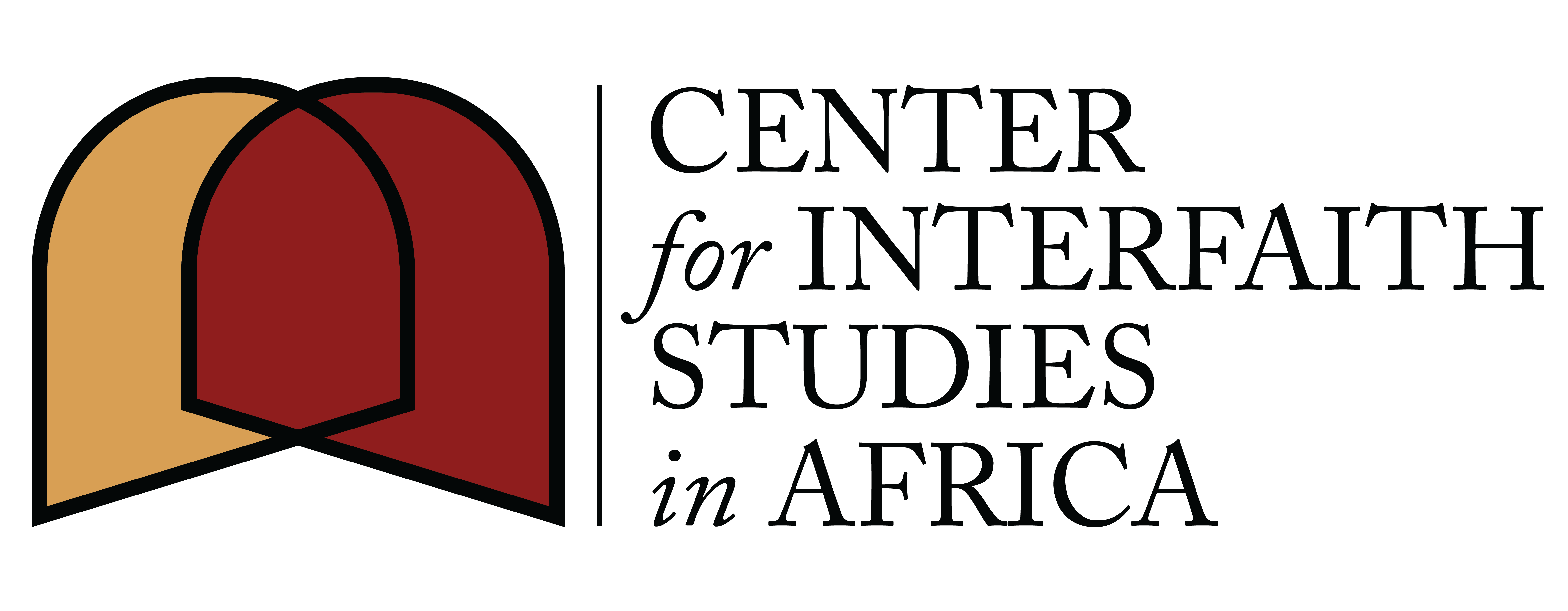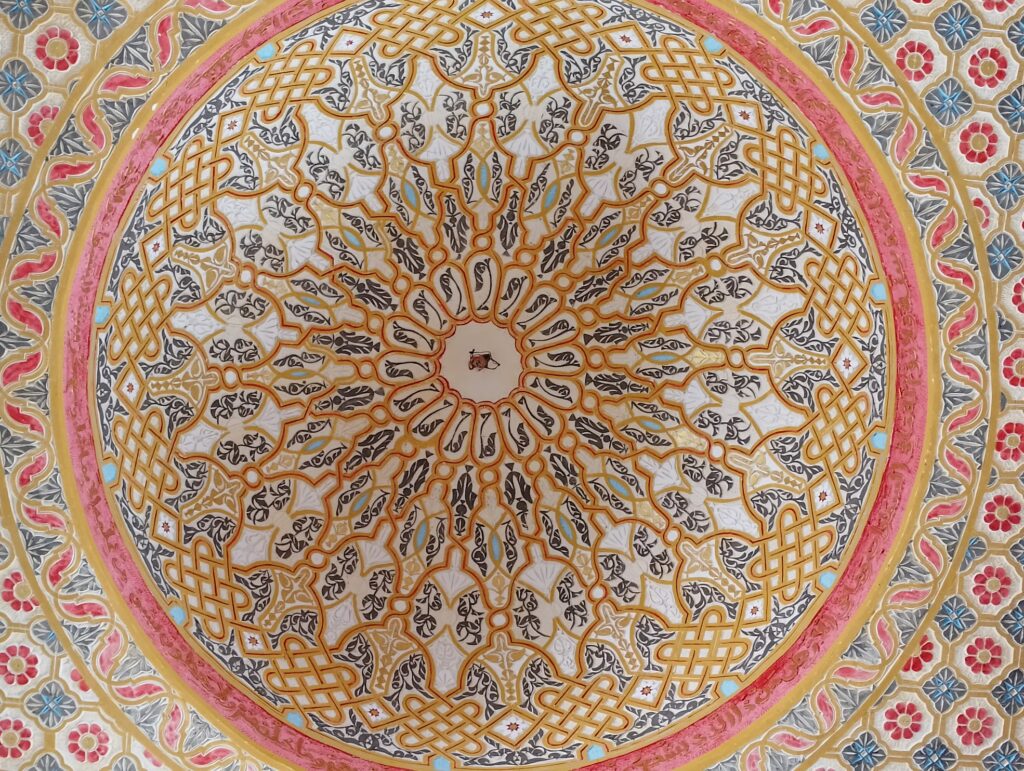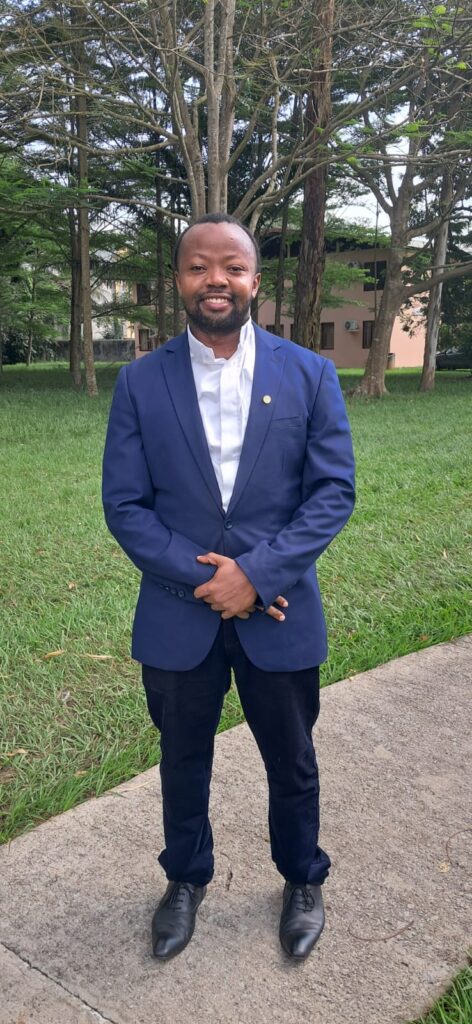Interfaith dialogue at the crossroads of Lent and Ramadan, by Justin Ilboudo, SJ

On Thursday, March 20, 2025, I was one of two guests on a program titled Droit dans les yeux (Right in the Eyes) on the TV channel 7 Info. The other guest was Imam Zacharia Sidibé. The priest and the Imam were invited to the same set to discuss Christian Lent and Muslim fasting, which intersect this year. The journalist who invited us had expressed a desire to discuss the meaning of Muslim and Christian fasting, examining the religious significance of each faith as well as the spiritual applications for believers. Moreover, since we are in Côte d’Ivoire, a West African country that will hold presidential elections in October, the journalist wanted to explore how we perceive the role of religious leaders at a critical and potentially volatile moment in the nation’s life. This was the topic of discussion.
In a cultural context where the presence of Islam influences Christian practices, I took the opportunity to highlight the specificity of Lent, which is not a month of fasting for Christians. First of all, the Latin etymology of the word “Lent,” quadragesima, which means “fortieth,” sets out a particularity. It’s a period of 40 days during which the Christian relives with Jesus his sojourn in the desert and wages the same battle against evil as his master did. These 40 days are themselves reminiscent of the 40 years during which the people of Israel wandered in the desert toward the Promised Land, abandoned to their limitations but supported by God’s solicitude.
This high point in the life of the Church is not only characterized by fasting. Fasting is itself a dimension of penance, which can be enriched by other types of deprivation, complemented by prayer and sharing. In the provisions of the Code of Canon Law, while all Christians must practice penance “each in his own way” (C. 1249), and all Fridays of the year are days of abstinence, the only days of fasting prescribed during Lent are Ash Wednesday and Good Friday (C. 1251). Adults are required to fast until the beginning of their sixtieth year (C. 1252). These clarifications give renewed prominence to the teachings of the prophets, particularly those of the 8th century B.C., whose teachings make religion more inward-looking, and propose other forms of penance than simply abstaining from eating and drinking. Lent can, therefore, be understood as a time for decentering oneself and refocusing on God and one’s neighbor. I was keen to quote the prophet Hosea, to emphasize that during Lent, the believer experiences God’s tenderness by disentangling himself from himself and from things of secondary importance (Hos 2:16-18).
Imam Sidibé, for his part, retraced the historical origins of the month of Ramadan and converged on the same calls to penance, sharing, and prayer. This convergence is not surprising, since the prescription of fasting in the Holy Book of the Koran refers to the practice of other believers who preceded Muslims. He emphasized that Muslim fasting was addressed God in its vertical dimension, to one’s neighbor in the horizontal dimension, and was also directed inward, helping the believer achieve a healthier lifestyle by reducing consumption. It is worth noting that Imam Sidibé is also a nutritionist.
One of the main themes of the program was the dialogue between the two religions, Islam and Christianity. Asked what we Catholic Christians share with Muslims, I recalled the observations of the Declaration Nostra Aetate. Dogmatically speaking, the Council states that we believe in the same God and worship him through penance, prayer, and sharing. Muslims also consider Jesus to be a prophet and honor his mother.
With Muslims, we believe in the resurrection of the dead and the Last Judgment. On an ethical level, the Council encourages Christians and Muslims to work for social justice, peace and freedom.
In retrospect, I wish I could have insisted that the coincidence of Lent and Ramadan was conducive to interfaith dialogue, particularly the dialogue of life. Christians and Muslims who organize the collective breaking of the fast are not mistaken. This dialogue of life is itself likely to make the dialogue of works possible because it brings believers together and enables them to think of appropriate ways to meet the challenges of their daily lives, particularly those linked to the torments of poverty. And while the dialogue of experts may seem like a luxury, during the program I was able to admire Imam Sidibé’s knowledge of the Bible, as he repeatedly quoted the Pentateuch and the Sermon on the Mount with remarkable precision. It would not have been excessive to mention what Pope Francis called “the dialogue of blood” when terrorists unite in their crimes the blood of Christians and Muslims who believe in living together. Overall, the tone of the exchanges was friendly and peaceful.
The final part of the program dealt with the role of the religious leader during the electoral period that the country would experience this year. The Imam insisted that Islam was a religion of peace and that a Muslim who was not a friend of peace would not see paradise. He resolutely upheld the secular nature of the Republic of Côte d’Ivoire, asserting that the religion of the Head of State should not be the religion of the people. For my part, I proposed a distinction between politics as a race for national representation, in which the cleric could not participate, and politics as the construction and safeguarding of the common good, from which he could not shirk. A few days earlier, the Conference of Catholic Bishops of Côte d’Ivoire (CECCI) had made public their “Appel pour une élection présidentielle juste, transparente, inclusive et apaisée” (Call for a just, transparent, inclusive and peaceful presidential election) launched on March 11, 2025.
Justin Ilboudo, SJ
CERAP/Université Jésuite, Abidjan-Côte d’Ivoire
Norbert Litoing, S.J. delivers his Peacemaker in Residence and Mission Week keynote address at Marquette.

Norbert Litoing, S.J., visited Marquette University in February 2025 for the university’s Mission Week celebration, during which he also served as the Center for Peacemaking’s Peacemaker in Residence. His stay at Marquette included a keynote address, classroom visits, and many conversations with students and faculty. Following his keynote, he sat down with us to share insights from his experiences in interreligious dialogue and peacemaking.Read more
ESSAY COMPETITION
Bridging Faiths, Building Peace: Scriptural Reasoning (Harmony Institute) and Open-Doors Day (Jamia Mosque)
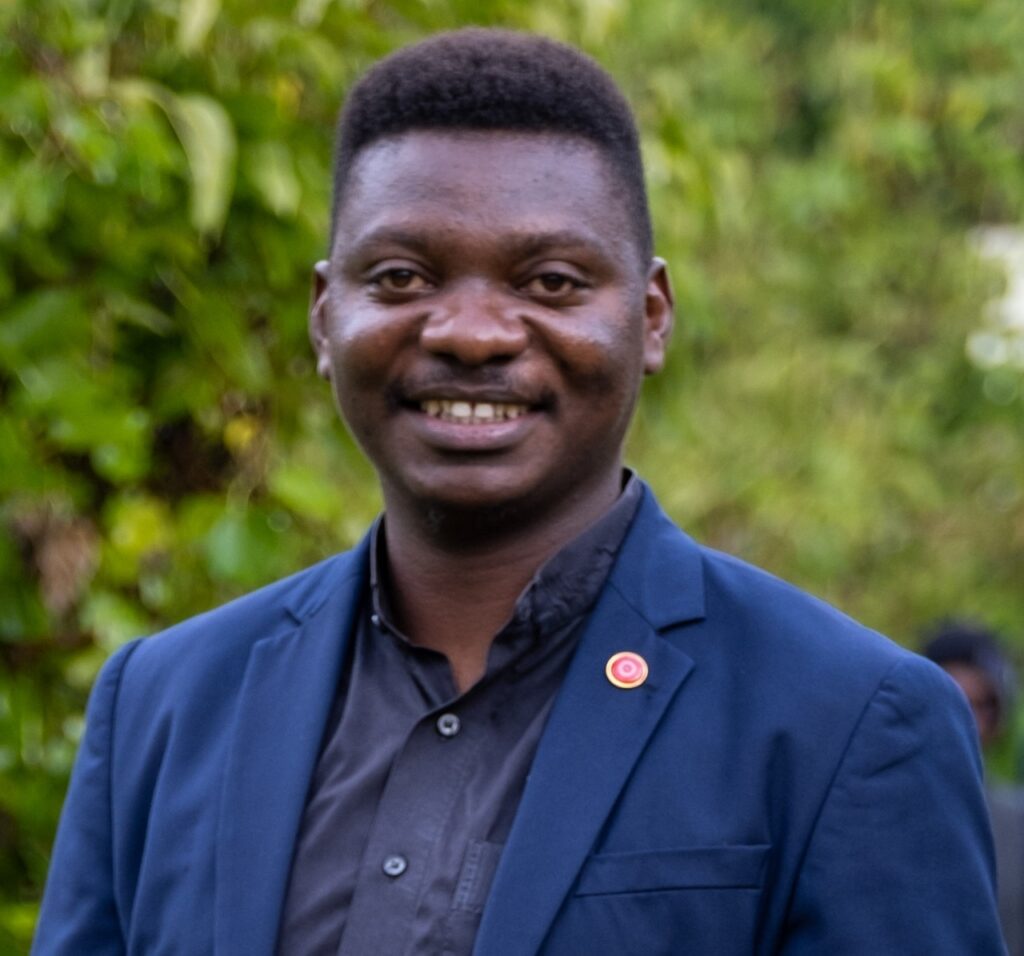
In pursuit of its mission to incorporate ecumenical and interfaith dialogue into theological education, Hekima University College has established the Centre for Interfaith Studies in Africa (CISA). Located on the Riara Road campus, the center began its first academic year (2024-2025) with enthusiasm and a strong commitment to promoting meaningful engagement among various faith traditions.
During the first semester, the Centre actively participated in two momentous events: the Harmony Institute’s Scriptural Reasoning sessions and Jamia Mosque Nairobi’s Open-Doors Day. These initiatives reflect the Centre’s unwavering dedication to cultivating deeper interreligious understanding and fostering constructive dialogue in an increasingly pluralistic world.
Exploring Sacred Texts: Scriptural Reasoning at Harmony Institute
The Harmony Institute facilitates monthly Scriptural Reasoning sessions, bringing together people of diverse faiths to engage in comparative analysis of their sacred scriptures. These gatherings aim to highlight shared beliefs, deepen theological understanding, and dismantle misconceptions, fostering an atmosphere of mutual respect.
One session centered on the figure of Abraham, with Sr. Mary Frances Sebastian, LSSJ, guiding the discussion with scholarly depth and pastoral sensitivity. Participants examined Abraham’s story as narrated in the Bible (Genesis 12:1-3, 15:1-6, 17:1-8, 22:16-18) and in the Quran (Surah 2:124-125, 16:120-121, 22:78, 37:100-101)
The discussion illuminated key commonalities and theological nuances:
- Faith and Obedience – Both the Bible and the Quran extol Abraham’s unwavering trust in God. In the Biblical narrative, he is called to leave his homeland; in the Quran, he is commended for his monotheistic devotion.
- The Covenant – While the Bible emphasizes the covenant through Isaac, the Quran highlights Abraham’s connection to Ishmael, offering a rich perspective on shared heritage and diverse theological traditions.
- The Near-Sacrifice of Abraham’s Son—Though this foundational narrative is shared, it differs in interpretation. The Bible identifies Isaac, whereas the Islamic tradition generally holds that it was Ishmael, though the Quran does not explicitly name him.
These discussions, rather than being simple theological exercises, strengthen interfaith bonds and encourage participants to transcend doctrinal differences in favor of a spirit of unity and mutual enrichment.
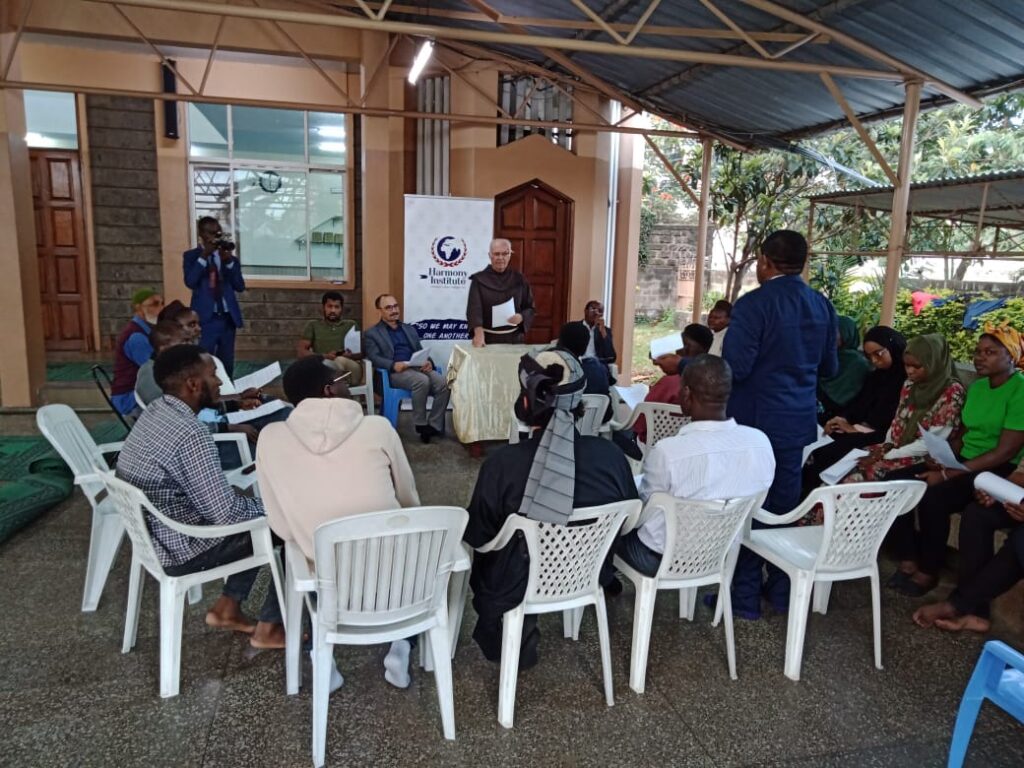
Discussions during a Scriptural Reasoning Session
Stepping Inside the Mosque: Open-Doors Day at Jamia Mosque Nairobi
Parallel to the Scriptural Reasoning sessions, the Center for Interfaith Studies at Hekima University College actively participated in Jamia Mosque Nairobi’s Open-Doors Day. This annual initiative embodies Islam’s commitment to interfaith dialogue and hospitality. This immersive experience allowed attendees to explore the mosque’s rich cultural and spiritual heritage and even take part in the Midday Prayer, guided by an Imam who offered insightful explanations of the gestures and meanings embedded in the prayer. Discussions throughout the event delved into critical interfaith themes, including the following: the role of hospitality in a multicultural society; Islam and social media: the role of platforms like TikTok; Islamic views on images and representation; predestination vs. free will in theology; the concept of repentance in Islam; and the inculturation of Islam in Africa. These thought-provoking conversations highlighted a shared desire for deeper understanding and peaceful coexistence, emphasizing that interfaith dialogue is not merely an academic pursuit but a necessary pathway toward communal harmony.
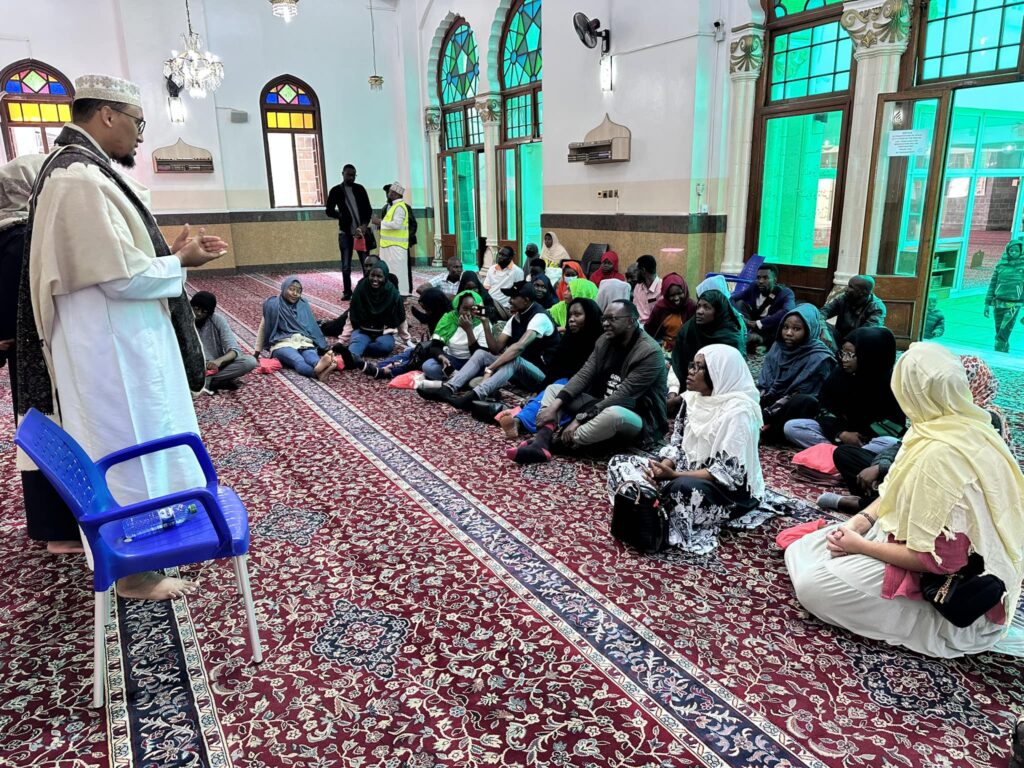
Inside Jamia Masjid on Open Doors’ Day
Paving the Way for a More Inclusive Future
The first semester of CISA’s journey has established a strong foundation for fostering unity in diversity. By actively engaging in Scriptural Reasoning and interfaith dialogue initiatives, the Center has showcased the transformative power of shared experiences in bridging divides and promoting peace. As the world grapples with increasing religious and cultural tensions, Hekima University College’s Center for Interfaith Studies in Africa stands as a beacon of hope, paving the way for a future where understanding prevails over division and dialogue leads to lasting cooperation.
Looking Ahead: Strengthening the Ties that Bind
The momentum is building, and CISA remains dedicated to expanding its initiatives. Future programs will continue to create spaces where Christians, Muslims, and people of other faith traditions can learn from one another, challenge biases, and build enduring friendships. Through such engagements, the Center is not merely discussing interfaith dialogue—it is actively living it.
Exploring Interfaith Relations in Senegal: A Research Journey
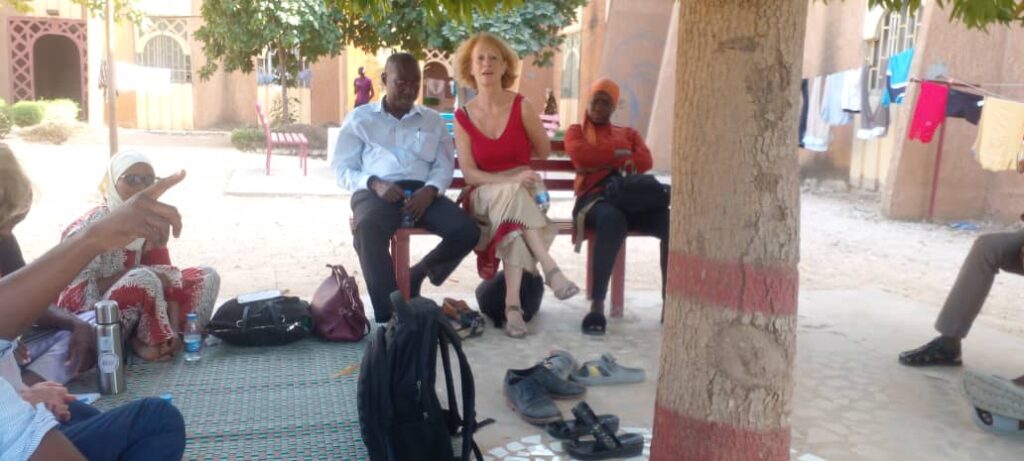
From November 17 to 24, 2024, a team of researchers embarked on an exploratory visit to Senegal as part of the project “The Role of Social Identities in Inter-Religious Arrangements: Comparative Perspectives on and from Sub-Saharan Africa,” organized by the Excellence Cluster on Religion and Politics of the University of Münster. This visit sought to deepen our understanding of interfaith dynamics in Senegal, a country often celebrated for its religious pluralism and culture of peaceful coexistence.
Dakar: Engaging Religious and Academic Institutions (November 17-21)
Our journey began in Dakar, Senegal’s vibrant capital and a crossroads of religious, political, and cultural influences. Here, we engaged with key religious and academic institutions shaping interfaith relations in the country. A highlight of our stay was a meeting with the Archbishop of Dakar, His Grace Benjamin Ndiaye, who welcomed us warmly and shared his insights on Christian-Muslim relations in Senegal. His reflections underscored the historical depth of interfaith collaboration in the country, where religious communities have long coexisted peacefully, often within the same families and neighborhoods. He emphasized the role of mutual respect, dialogue, and shared values in maintaining this harmony and the importance of religious leaders working together to address contemporary social challenges.
We also had the chance to visit the Islamic Institute of Dakar, a well-respected center for Islamic education and research. There, the head of the research department engaged us in discussions about Islamic teachings, interfaith dialogue, and the role of religious institutions in promoting societal cohesion. The visit offered a deeper understanding of how Islamic scholarship and religious leadership contribute to Senegal’s model of interfaith cooperation.
During our stay in Dakar, it became increasingly evident that Senegal’s religious pluralism is not only a historical legacy but also an ongoing social reality, actively supported by religious leaders, educators, and everyday citizens alike. The city’s diverse religious landscape, marked by churches, mosques, and Sufi shrines, served as a living testament to this tradition of coexistence.
Saint-Louis: A Historical and Reflective Engagement (November 21-24)
Leaving Dakar, we traveled north to Saint-Louis, a city with profound historical and religious significance. Once the capital of French West Africa, Saint-Louis remains an important cultural and intellectual hub, with a legacy shaped by colonial history, Islamic scholarship, and Catholic presence.
In Saint-Louis, we were hosted by Professor Abdourahmane Seck and his team from GAEC (Groupe d’Action et d’Étude Critique) at Université Gaston-Berger. Their hospitality and intellectual generosity enriched our experience, providing us with both historical context and contemporary perspectives on religion, identity, and interfaith dynamics in the region.
A key part of our stay involved immersing ourselves in the city’s historical and religious landscape. We visited significant sites that reflect the city’s layered history, from colonial-era churches and mosques to Sufi lodges that continue to shape religious life in the region. Walking through the city, we sought to “breathe in” its rhythms—to feel its spiritual and cultural currents and reflect on how interfaith interactions manifest in daily life.
This reflection culminated in a waaxtan, a conversation inspired by the Senegalese tradition of open and communal dialogue. Here, we shared our thoughts on what we had observed and learned, engaging in discussions on the intersections of faith, history, and identity in Saint-Louis. The waaxtan allowed us to collectively process the living reality of interfaith coexistence and to consider the broader implications of our findings for interreligious studies in Africa.
Key Insights and Reflections
Our research visit to Senegal illuminated several important themes regarding the role of social identities in interfaith arrangements:
The Senegalese Model of Religious Coexistence – Senegal is widely recognized for its culture of religious tolerance and collaboration, often encapsulated in the Wolof term Teranga (loosely translated as hospitality). Both in Dakar and Saint-Louis, we observed how Christian-Muslim relations are characterized by deep familial, social, and historical ties rather than mere institutional or doctrinal dialogues.
The Role of Religious Leaders in Fostering Dialogue – Both the Archbishop of Dakar and the scholars at the Islamic Institute emphasized that religious leaders play a crucial role in sustaining interfaith harmony. By engaging in dialogue, promoting shared values, and addressing societal issues together, they help maintain the country’s long-standing tradition of peaceful coexistence.
Interfaith Dialogue Beyond Institutions – While formal dialogues and academic discussions are important, interfaith engagement in Senegal extends beyond structured events. It is woven into daily life, family dynamics, and community interactions. For example, it is common to find Christian and Muslim family members celebrating religious festivals together or attending one another’s life events.
The Importance of Historical and Cultural Contexts – Our visit to Saint-Louis underscored the significance of historical consciousness in understanding contemporary interfaith relations. Religious and social identities are deeply rooted in historical processes, from colonial encounters to Sufi traditions, and appreciating this historical depth is key to meaningful interfaith engagement.
Experiential Learning and Reflection – The approach of “breathing in the city” and then reflecting through interreligious conversations proved to be a powerful method for studying interfaith dynamics. It allowed us to move beyond theoretical discussions and engage with the lived realities of interfaith interactions.
Our exploratory visit to Senegal was a deeply enriching experience. It offered valuable insights into how social identities shape interreligious arrangements in an African context. By engaging with religious leaders, scholars, and local communities, we witnessed firsthand how Senegal’s model of religious pluralism functions in practice.
As the Centre for Interfaith Studies in Africa continues to explore new frontiers in interreligious research, this visit served as a compelling case study of how religious traditions can coexist, interact, and enrich one another in a shared social space. Senegal’s experience reminds us that interfaith dialogue is not only about theological discussions but also about everyday encounters, mutual respect, and a willingness to learn from one another.
Beyond Borders: A Transformative Encounter with Islam at ITCJ
Bridging Divides with Care: My Week as Peacemaker in Residence at Marquette University

From January 25 to February 4, 2025, I had the privilege of serving as Peacemaker in Residence at Marquette University’s Center for Peacemaking in Milwaukee, Wisconsin. This visit provided a unique opportunity to share insights from my work at the Centre for Interfaith Studies in Africa, engage with students and faculty, and explore the rich tradition of peacebuilding that Marquette fosters within its academic community and the city of Milwaukee.
Engaging with Students: Interfaith Studies in Practice
A significant part of my time at Marquette was spent visiting classes across various disciplines, where I spoke with students about the mission and work of the Centre for Interfaith Studies in Africa. These classroom interactions were not only opportunities to share my experiences but also to engage in meaningful discussions on interfaith dialogue, social identities, and the challenges of building trust across religious and cultural divides.
Students raised thought-provoking questions about the role of religion in conflict resolution, the intersection of faith and social justice, and the lived experiences of interfaith engagement in Africa. These discussions highlighted the increasing interest among young scholars in exploring how religious traditions can act as forces for peace rather than division.
Experiencing the Work of the Center for Peacemaking
Outside the classroom, I had the chance to observe and interact with students who were actively involved in peacebuilding initiatives through the Center for Peacemaking. Marquette’s commitment to nonviolence, conflict transformation, and community engagement was evident in the variety of projects led by both students and faculty.
I was particularly struck by the way students are empowered to apply the principles of peace and justice in practical ways—whether through grassroots initiatives, research on restorative justice, or direct service projects in Milwaukee and beyond. Their dedication reinforced the idea that peacemaking is not just an academic pursuit but a lived commitment to social transformation.
Public Lecture: “From Mistrust to Respect”
The highlight of my visit was delivering a public lecture on February 3, titled “From Mistrust to Respect: A Jesuit’s Path to Embracing the Religious Other with Care.” This lecture was an opportunity to reflect on my journey in interfaith engagement, particularly the challenges and transformative encounters that have shaped my understanding of religious pluralism, dialogue, and reconciliation.
In the lecture, I explored how mistrust between religious communities is often rooted in historical narratives, social structures, and inherited fears, and how moving toward respect requires intentional engagement, deep listening, and a commitment to recognizing the dignity of the other. Drawing from my experiences in Africa and beyond, I emphasized that interfaith dialogue is not merely about theological discussions but about fostering relationships built on trust, care, and shared humanity.
The discussion that followed was rich and deeply engaging, with audience members sharing their own perspectives on interfaith relations, the challenges of religious polarization, and the role of universities in fostering a culture of encounter and understanding.
Reflections and Takeaways
My time at Marquette reinforced several key insights:
Interfaith Dialogue is a Vital Tool for Peacebuilding – Conversations with students and faculty highlighted that religious literacy and interfaith engagement are crucial components of conflict resolution and social cohesion. Institutions like Marquette are playing an essential role in shaping future leaders who approach faith and difference with openness and critical thought.
Academic Institutions as Catalysts for Change – Universities have the potential to be laboratories for interfaith cooperation, where students are encouraged to grapple with complex social issues, engage with diverse perspectives, and apply their learning to real-world challenges.
The Power of Encounter – Whether through class discussions, informal conversations, or interactions with students involved in peacebuilding projects, this visit reaffirmed that true transformation occurs through personal relationships and direct engagement. The practice of interfaith dialogue must extend beyond theory and into the realm of lived experience.
This residency at Marquette University’s Center for Peacemaking was an enriching experience that deepened my appreciation for the global interconnectedness of peace efforts. The conversations, encounters, and reflections from this visit will undoubtedly inform and inspire the ongoing work of the Centre for Interfaith Studies in Africa as we continue seeking pathways to foster understanding, respect, and dialogue across religious and cultural divides.
